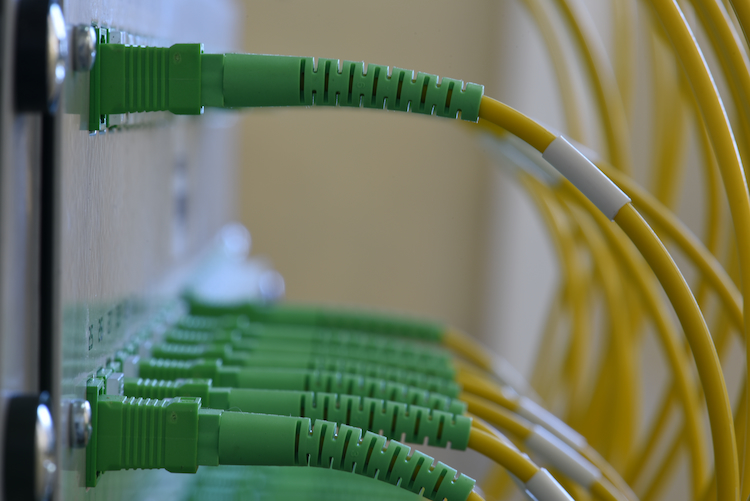Full fibre broadband in the UK

Fibre or Fiber? The decision is yours.
Call us and let our experts find you the best broadbands plan on the market. For free.
Monday to Friday – 8.30 am to 5.30 pm
Ad



Fibre or Fiber? The decision is yours.
Call us and let our experts guide you to the best broadband plan on the market. For free.
Monday to Friday – 8.30 am to 5.30 pm
Ad
Full fibre broadband, also known as fibre to the premises, or FTTP, broadband uses full fibre optic cables for the entire length of the connection. This means that there will be full fibre cables running all the way from your internet provider to your home.The main advantage of this type of broadband is its speed. Able to deliver up to one gigabit of internet per second (1Gbit/s), it’s considerably faster than all other internet options currently on the market. This makes it ideal for gamers, households that like to stream multiple HD movies at the same time and those who want lightning fast internet at their fingertips.Full fibre internet is slowly being rolled out across the UK. Currently, around 18% of homes have access to full fibre broadband. This number is growing all the time so, if you don’t have access to FTTP right now, there’s a good chance it will reach your home in the next few years. In this article, we’ll provide an overview of providers, availability and how fibre compares to other types of broadband so you can make the best choice.
Last update: April 2022

What is full fibre broadband?
Most broadband in the UK is delivered via fibre optic cables. These cables allow data to be transmitted quickly and easily and provide enough bandwidth for most users to stream TV, movies and games without a problem.
However, the fibre optic cables used for normal broadband only extend to local ‘cabinets’. Most providers then use slower copper cables to continue the connection from the cabinet to your home. This can make your internet feel a lot slower, especially if you have to share your connection with multiple neighbours or live in a high usage area.
Full fibre broadband on the other hand uses fibre optic cables for the full connection. This means you don’t have to share your bandwidth with anyone and will essentially be plugged straight into the data source.
How does full fibre broadband work?
In order for full fibre broadband to work, new cables need to be laid from the local cabinet to each individual home in the network. Once these cables are installed, data can be transferred to homes and businesses at ultrafast speeds. The government aims to complete the rollout of full fibre broadband by 2025.
What speed is full Fibre broadband?
Full fibre broadband can provide speeds of up to 1GBit/s. In reality however, most households won’t see speeds anywhere near this fast, not for a few years anyway.
BT, one of the leading providers of full fibre broadband in the UK, currently has four options when it comes to download speed.
- Full Fibre 100: 100Mbps
- Full Fibre 300: 150Mbps
- Full Fibre 500: 250Mbps
- Full Fibre 900: 455 Mbps
Even 100Mbps of internet is incredibly fast. Making it a great choice compared to ADSL or satellite if speed is a priority for you. At these sorts of speeds, you’ll be able to stream, download, game, shop and make uninterrupted video calls.
What is the difference between fibre and full fibre?
Aside from the technicalities around installation, the main difference between fibre and full fibre is speed. Full fibre is also likely to be more reliable than standard broadband as you don’t need to share your connection with neighbouring properties. This means your internet speed will be more or less guaranteed.
Our broadband experts are here to help
Free service – Available Monday to Friday from 8.30 am until 5.30 pm
Who provides full fibre broadband?
The largest provider of full fibre broadband in the UK is BT. The full fibre rollout has been led by BT subsidiary Openreach and the supplier currently offers full fibre to more areas than any other company.
The other main supplier offering full fibre broadband is Virgin Media. The company is using its own infrastructure and so its rollout is a little slower. However, it is now offering internet of up to 8Gbps to a small number of areas across the country.
The table below shows the main fibre broadband packages currently available in the UK.
| Package | Avg download speed | Avg upload speed | Contract length | Price per month |
|---|---|---|---|---|
| BT Full Fibre 100 | 100Mb/s | 30Mb/s | 24 months | £29.99 |
| BT Full Fibre 300 | 300Mb/s | 50Mb/s | 24 months | £39.99 |
| EE Full Fibre Max 100 | 100Mb/s | 30Mb/s | 18 months | £39 (£35 for EE mobile customers) |
| EE Full Fibre Max 300 | 300Mb/s | 50Mb/s | 18 months | £47 (£42 for EE mobile customers) |
| EE Full Fibre Max 900 | 900Mb/s | 50Mb/s | 18 months | £60 (£54 for EE mobile customers) |
| Sky Broadband Ultrafast | 145Mb/s | 27Mb/s | 18 months | £35 |
| Sky Superfast Broadband | 59Mb/s | 16Mb/s | 18 months | £28 |
| Sky Superfast Broadband + WiFi Guarantee | 59Mb/s | 16Mb/s | 18 months | £33 |
| Hyperoptic Fast (30Mb) | 30Mb/s | 5Mb/s | 12 months | £17.99 |
| Hyperoptic Fast (50Mb) | 50Mb/s | 5Mb/s | 12 months | £22 |
| Hyperoptic Superfast | 150Mb/s | 150Mb/s | 12 months | £29 |
| Hyperoptic Ultrafast | 500Mb/s | 500Mb/s | 12 months | £33 |
| Hyperoptic Hyperfast | 900Mb/s | 900Mb/s | 12 months | £39 |
| M100 Fibre Broadband + Phone | 108Mb/s | 10Mb/s | 18 months | £25 |
| M200 Fibre Broadband + Phone | 213Mb/s | 20Mb/s | 18 months | £31 |
| M350 Fibre Broadband + Phone | 362Mb/s | 20Mb/s | 18 months | £37 |
| M500 Fibre Broadband + Phone | 516Mb/s | 36Mb/s | 18 months | £43 |
Full fibre broadband costs?
Full fibre broadband is slightly more expensive than fibre broadband or cable broadband for example. This is because of the extra infrastructure and required to get FTTP to your home. Note that in some circumstances, no landline is required.
However, considering the speed and reliability of the service, it’s actually relatively affordable, with deals starting from just £29.99 per month. If you want the fastest possible full fibre, you’ll probably need to pay around £60 per month.
Full fibre broadband deals
BT’s full fibre broadband deals start from £29.99 per month and go up to £60 per month. Virgin Media full fibre deals start from £54 per month.
Can I get full fibre broadband?
Full fibre broadband is currently available to around 4.5 million homes in the UK. The easiest way to find out if full fibre is available in your area is to put your postcode into the Openreach website. This will show if the service is already active in your area and what sort of speeds you could expect to see.
![]()

How does full fibre compare to other types of broadband?
Full fibre is faster and more reliable than pretty much all other types of broadband. This is because your home or business will be plugged straight into the grid and you won’t have to share your connection with anyone else.
The only other comparable service is Virgin Media’s cable broadband. This is a similar service to full fibre and also offers very fast and reliable internet speeds. However, in order to fully understand broadband differentiations it´s best to do a side by side comparison of broadband technologies.
Call us to switch your broadband provider for free!
0330 818 6395Notice
FAQ
What is full fibre broadband?
Full fibre broadband is broadband that’s delivered to your home or business exclusively via fibre optic cables. Unlike normal broadband, which travels on fibre optic cables to local cabinets and then completes its journey to your property via copper cables, full fibre is uninterrupted for its entire connection. This makes full fibre very fast and very reliable.
How does fibre broadband get to your house?
Full fibre is slowly being rolled out across the UK. In order for full fibre to reach your premises, you’ll need to wait for fibre optic cables to be installed from your local cabinet to your home. This should happen in most areas by the end of 2025.
How much does BT full fibre cost?
BT full fibre deals start from £29.99 per month for Full Fibre 100 and go up to £60 per month for Full Fibre 900.
Is BT full fibre unlimited?
BT full fibre broadband packages offer unlimited broadband. This means you’ll be able to stream, game, shop and socialise as much as you want to.
Updated on 9 May, 2022
william
UK Content Manager